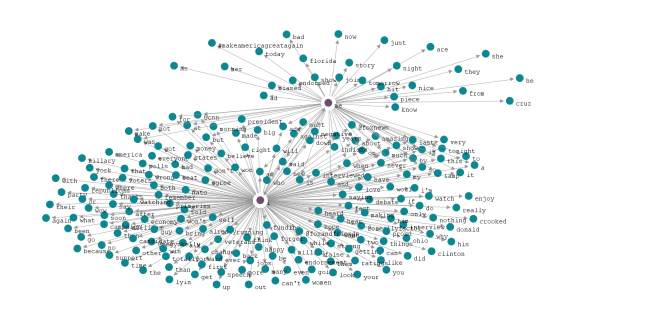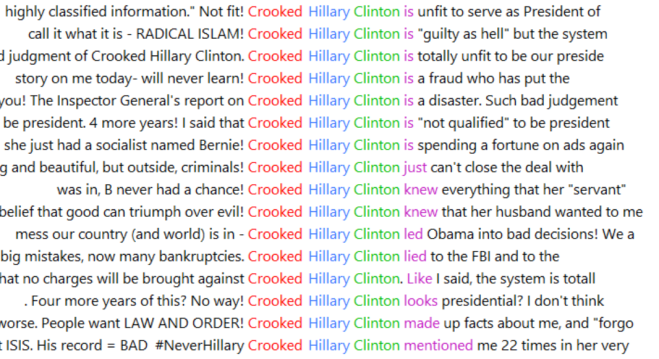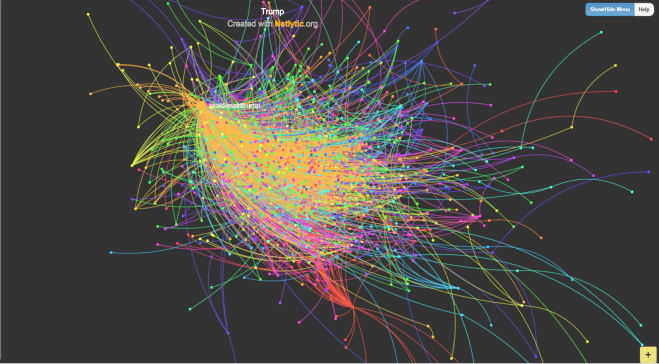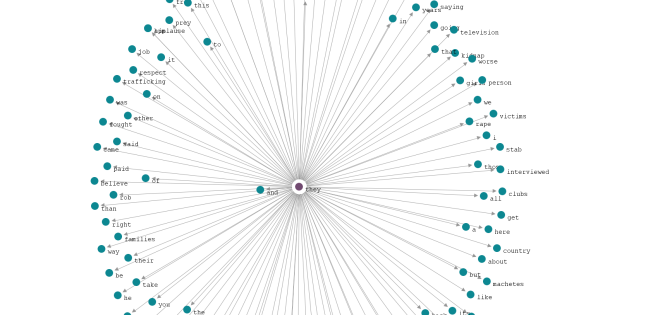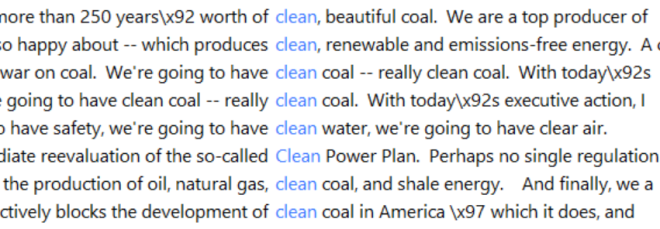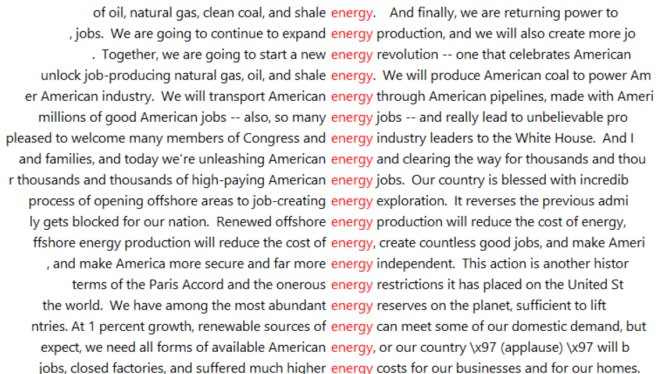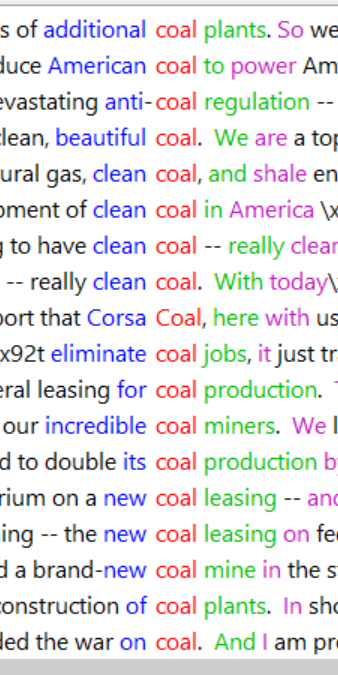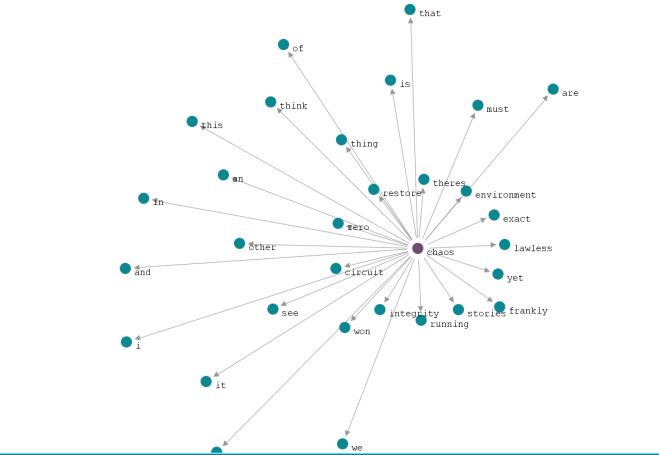
Recently, Trump posted the following tweet:

I feel I need to break this down because I find it a very harmful text, and as the writer is the President of the US, this discourse has a huge readership and influence.
Firstly, the Democratic Party is associated with MS-13, an international criminal gang that originated in Los Angeles, California, in the 1980’s. The gang spread to other parts of the continental United States, Canada, Mexico, and Central America, and is active in urban and suburban areas. Most members are of Central American origin.
I believe that associating the Democrats with this street gang is an utter fallacy; there is no basis for such a claim, but if it is continually made, as it is by this President, the people will start to believe it. Just because the previous President didn’t implement harsh immigration policies, or generate racist rhetoric towards refugees and immigrants, no argument can be made stating that they support such groups as MS-13. An utter fallacy!
Then we have the phrase ‘run wild‘.
As can be seen from the COCA corpus, many things run wild:
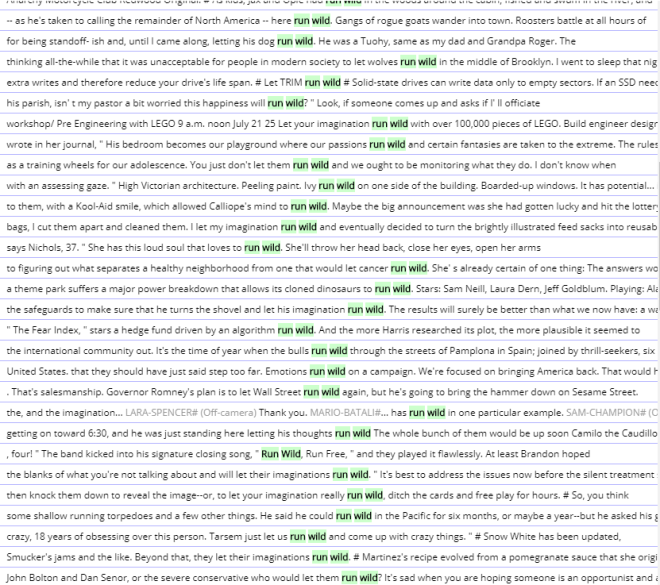
Something that is described as running wild could be understood as being without control. As that the case of US cities these days? Have they been taken over by Latin American gangs who are beyond the jurisdiction of US law enforcement? It appears that this may be somewhat of a hyperbolic statement.
Then we have the phrase ‘our communities‘ . Firstly, our, who does the President define as ‘we’ and ‘them’ . Due to the decisive rhetoric that this man produces, I can only imagine that there are many individuals who feel excluded from this man’s in-group. Then we have the word community, a social group that have something in common, who have something that is shared, so obviously using this word has a meaning beyond the word city. The writer is describing those who share something with him, who have something in common with him, but as I said previously, this man has caused great divisions. Who belongs to this in-group? Who is a member of ‘our communities’?
‘let drugs pour into our cities’
The Democrats are being accused of this? Is that because of that fallacious claim that they support MS_13, which I’m quite sure they don’t, or is it because they didn’t implement harsh immigration policies when they were in power? I believe it’s more a case of trying to associate illegal drugs with immigrants and refugees. Again, if you repeat an argument often enough, and there are enough people who hear you, eventually the message becomes a part of public belief, regardless of how baseless the statement is.
‘take jobs away and benefits away from hardworking Americans’
This argument has been used by the far-right for such a long time! Immigrant and refugees will take away ‘our’ jobs. But isn’t it so often the case that they take low-paying, difficult jobs that nobody else wants. Do refugees take away benefits from the indigenous people, are immigrants unable to pay taxes and contribute in any positive way to there new country? I would argue, obviously not, but this claim is continually made to generate fear in the local population. Fear of the other, fear of the outsider, fear and distrust of those who are different to us.
‘hardworking Americans’
Yes, I’m quite sure that many Americans are very hardworking people, but by using this phrase, perhaps the writer is implying, or the reader may infer, that anyone who is an outsider, anyone who does not belong to ‘our communities’, is not a hardworking person, and will only be a burden to society. Is that the case? Is a person with a different language, culture, or background unable to contribute to a society? I don’t think so.
Democrats want anarchy … and chaos
Do they?!
I don’t see how that would be beneficial to anyone, let alone to a political party.
And, sorry for the cliche, but words matter! When you look at the word anarchy, it has powerful negative collocates:

To say that someone, or a group encourages anarchy, has significance.
Republicans want LAW, ORDER, and JUSTICE
But don’t most people want to live in a safe secure environment, free from tyranny and violence. It isn’t something exclusive to one particular political party!
Trump uses Twitter to disseminate his message. He has over 53 million followers. His messages have a global reach. Some of them, I find extremely harmful!







